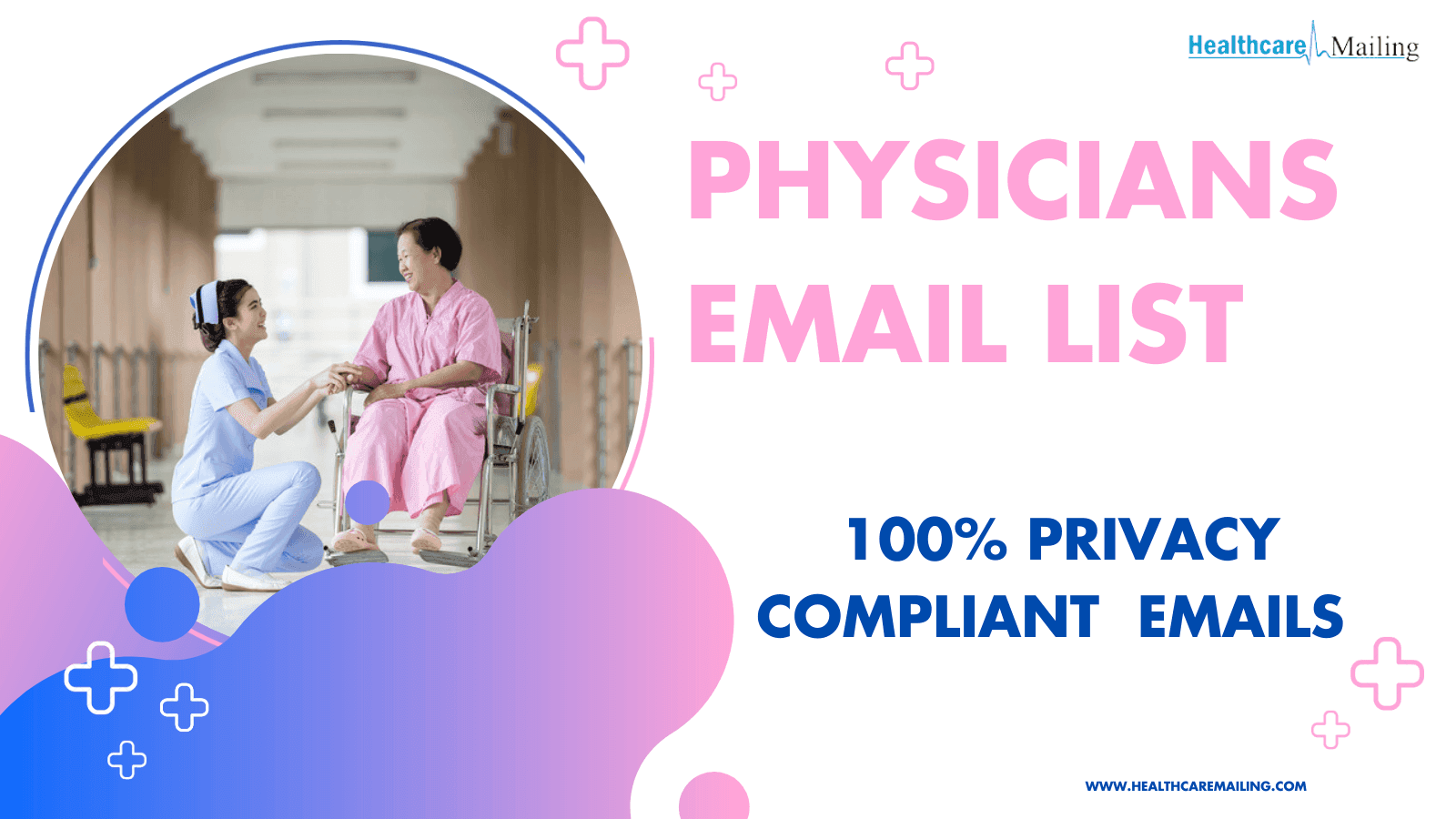
The Importance of Preventive Care: Promoting Wellness
Introduction
Preventive care is a vital component of maintaining good health and well-being. By focusing on proactive measures, individuals can take charge of their health and reduce the risk of developing chronic illnesses. Preventive care encompasses a range of services, Physicians Email List including routine check-ups, screenings, vaccinations, and health education. In this article, we will explore the importance of preventive care, its benefits in promoting wellness and early detection, and how it contributes to overall health and healthcare cost savings.

Promoting Wellness:
Preventive care plays a critical role in promoting wellness and preventing diseases before they occur. Key aspects include:
a. Disease Prevention: Regular preventive care allows healthcare providers to identify and address potential health risks before they become serious issues. Physicians Email List By conducting routine check-ups and screenings, healthcare professionals can detect early signs of diseases and intervene promptly.
b. Immunizations: Vaccinations are a crucial part of preventive care, as they help protect individuals from various infectious diseases. By staying up to date on immunizations, individuals can prevent the spread of diseases and protect themselves and their communities.
c. Lifestyle Modification: Preventive care emphasizes the importance of adopting healthy lifestyle habits. It encourages individuals to engage in regular exercise, maintain a balanced diet, manage stress, and avoid tobacco and excessive alcohol consumption. These lifestyle modifications significantly reduce the risk of developing chronic conditions, such as heart disease, diabetes, and certain cancers.
Early Detection and Intervention:
One of the primary benefits of preventive care is early detection and intervention. This aspect includes:
a. Regular Screenings: Preventive screenings, such as mammograms, Pap smears, colonoscopies, and blood pressure checks, can detect diseases in their early stages. Early detection allows for timely intervention and treatment, increasing the chances of successful outcomes and reducing the need for more invasive and costly procedures.
b. Disease Management: Preventive care helps individuals manage chronic conditions effectively. By monitoring health parameters, such as blood sugar levels or cholesterol levels, and providing guidance on lifestyle changes and medication adherence, healthcare providers can help individuals control their conditions and prevent complications.
c. Health Education: Preventive care offers opportunities for health education and counseling. Healthcare providers can provide information on risk factors, healthy behaviors, and the importance of early detection. Educating individuals empowers them to make informed decisions about their health and take proactive steps to prevent diseases.
Healthcare Cost Savings:
Investing in preventive care yields significant cost savings for individuals, healthcare systems, and society as a whole:
a. Reduced Healthcare Expenditures: By focusing on preventive measures, individuals can avoid costly treatments, hospitalizations, and emergency room visits. Early detection and management of diseases through preventive care help reduce the need for extensive and expensive medical interventions.
b. Improved Health Outcomes: Early detection and intervention lead to better health outcomes, which translate into lower healthcare costs. By addressing health issues in their early stages, individuals can prevent complications that may require more extensive and costly treatments in the future.
c. Productivity and Economic Impact: Promoting wellness and early detection through preventive care improves workforce productivity. Healthy individuals are more likely to be engaged in their work, reducing absenteeism and its associated economic impact on employers and the overall economy.
Conclusion:
The importance of preventive care in promoting wellness and early detection cannot be overstated. Through regular check-ups, screenings, vaccinations, and health education, individuals can take proactive steps to safeguard their health and reduce the risk of developing chronic diseases. Preventive care not only benefits individuals but also contributes to significant healthcare cost savings by reducing the need for costly treatments and improving overall health outcomes. Embracing preventive care as a fundamental pillar of healthcare ensures a proactive approach to well-being, promoting a healthier population and a more sustainableThe Importance of Preventive Care: Promoting Wellness and Early Detection
Appreciate the creator